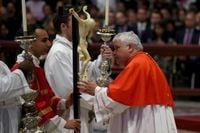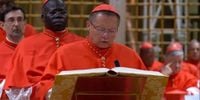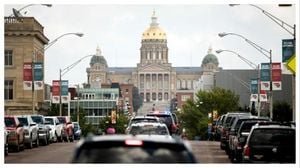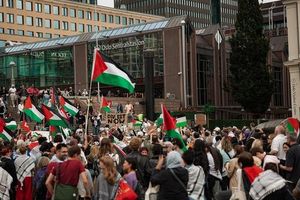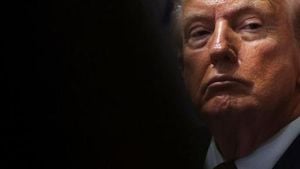The Vatican is preparing for a historic conclave to elect the successor to Pope Francis, who passed away on Easter Monday after twelve years of service. As the world watches closely, four Polish cardinals are eligible to participate in this significant event: Cardinal Stanisław Ryłko, Cardinal Kazimierz Nycz, Cardinal Konrad Krajewski, and Cardinal Grzegorz Ryś.
Pope Francis, who led the Catholic Church since 2013, was known for his progressive views and commitment to social justice. His death has sparked a wave of speculation about who will take his place, with various candidates emerging from around the globe. Among the potential successors, Cardinal Konrad Krajewski stands out due to his charitable work and close relationship with the late pope.
Cardinal Krajewski, often referred to as the "Robin Hood of the Pope," has served as the papal almoner since 2013, a role that involves caring for the poor and marginalized. His reputation for compassion was highlighted in 2019 when he removed seals from electricity meters in a building occupied by squatters, declaring he would pay their bills to ensure they had power. This act of kindness garnered significant media attention and showcased his commitment to helping those in need.
In addition to his domestic work, Krajewski has been active in humanitarian efforts in Ukraine since the onset of the Russian invasion in 2022. He has made several trips to deliver essential aid, including generators and warm clothing in December 2022, and a mobile hospital along with medical equipment in December 2024. His dedication to alleviating suffering has been recognized by Pope Francis, who has praised Krajewski's commitment to serving the poor.
While Krajewski's name is frequently mentioned among the candidates, experts caution that the list of realistic contenders is short. Father Kawecki, who studied with Krajewski in Rome, expressed skepticism about his chances, stating, "I have great respect for this figure, but I don’t see him as a real candidate for the successor of the Holy Father. However, theoretically, anything is possible."
As the conclave approaches, betting odds have emerged, with bookmakers offering insights into who might be favored to take the papal throne. Pietro Parolin, the Secretary of State of the Vatican, currently has the highest odds at around 3.25, making him a frontrunner among the candidates. Other notable names include Luis Antonio Tagle from the Philippines and Matteo Zuppi from Italy, with odds of approximately 4.00 and 5.50, respectively.
The betting landscape reflects a mix of experienced cardinals and emerging leaders, showcasing the diverse possibilities for the future of the Catholic Church. The odds for other potential candidates, such as Robert Sarah from Guinea and Peter Turkson from Ghana, range widely, indicating the unpredictable nature of the selection process.
In preparation for the conclave, which is expected to begin on May 7, 2025, speculation continues about the qualities the next pope should embody. Key factors influencing the election include the candidate's background, views on church reforms, age, and their ability to manage the challenges facing the Church today. The conclave traditionally favors cardinals who are already entrenched in the church's hierarchy, making it unlikely for someone outside this realm to be chosen.
As the world anticipates the outcome, the question remains: will the new pope continue the reforms initiated by Francis, or will the Church take a different direction? The upcoming conclave will not only determine the next leader of the Catholic Church but also shape its future in a rapidly changing world.
In addition to the serious implications of the papal selection, the betting scene has added an intriguing layer to the unfolding drama. Superbet, a popular betting platform, is offering a bonus of 300 PLN for new players who can correctly guess the country of origin of the new pope. This promotional strategy highlights the unique intersection of faith and speculation, drawing in a diverse audience eager to engage with the process.
The conclave is a secretive affair, with cardinals gathering to deliberate and vote in private. Historically, it takes about fifteen days following a pope's death or resignation to convene, allowing for the necessary preparations and discussions among the electors. This time frame provides a window for speculation and betting, as the public and analysts alike attempt to predict the future of the papacy.
Ultimately, the choice of the new pope will reflect the collective vision of the cardinals, who represent a wide array of perspectives within the Catholic Church. As they prepare to cast their votes, the eyes of millions will be upon them, hoping for a leader who can navigate the complexities of modern faith while remaining true to the Church's core values.
In this moment of transition, the world waits to see who will emerge as the next pope, and what that choice will mean for the future of the Catholic Church and its followers around the globe.
